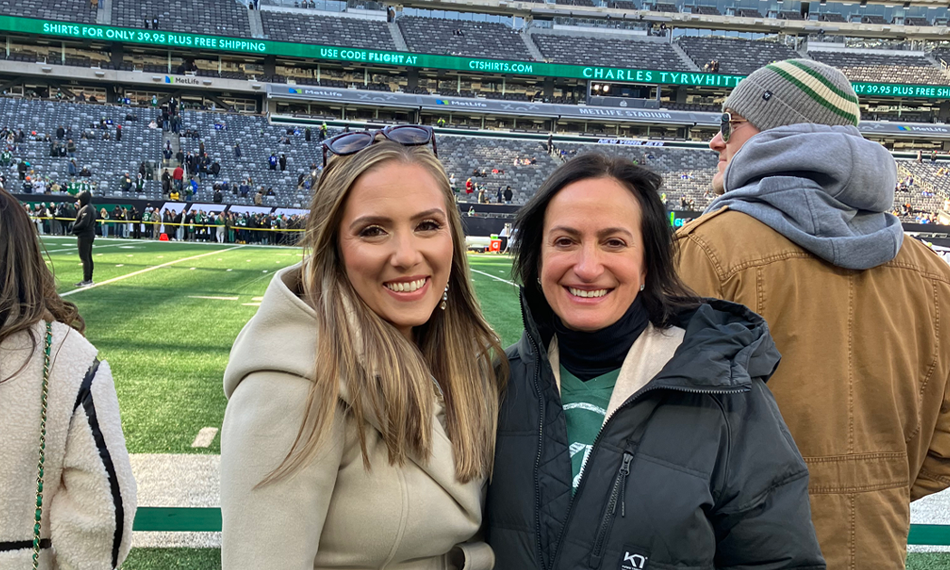When Jennifer T. woke up with a terrible headache and severe swelling at 31 weeks pregnant, she knew something was wrong. As a nurse practitioner at Atlantic Heath System, she knew the dangers of preeclampsia, a common condition during pregnancy that causes extremely high blood pressure. After using a home blood pressure cuff and watching the numbers climb, she called her OB/GYN and headed to the hospital.
The right expertise at the right time
When Jennifer arrived at Atlantic Health System’s Morristown Medical Center with soaring blood pressure, a team of specialists worked to get her symptoms under control. After a few days Jennifer’s preeclampsia was still so severe that her providers decided that the safest option for both mother and baby would be an early delivery. Jennifer and her husband welcomed a baby boy to their family just a few weeks early.
“In general, I think women don’t want to be a burden, but it’s so important to pay attention to your body,” says Jennifer. “If you feel like something is off, you should discuss it with your provider. Don’t brush off that headache or swelling. Get it checked out.”
The lingering impact of preeclampsia
When Jennifer’s symptoms continued after giving birth, she was evaluated by Amy Ahnert, MD, a cardiologist and Director of Atlantic Health System’s Women’s Heart Program. Dr. Ahnert and her team worked to control Jennifer’s symptoms, and she was discharged from the hospital a little more than a week after she was admitted. After seven weeks in the Neonatal Intensive Care Unit (NICU), her son was discharged as well and joined Jennifer and her husband at home with their two children.
“An estimated 15% of pregnant women in the United States will develop preeclampsia during pregnancy. It’s a dangerous condition and a potentially preventable cause of maternal death,” says Dr. Ahnert. “Identifying women who are at risk early and helping them understand the symptoms is crucial.”
In addition to the risk of complications during pregnancy, preeclampsia can lead to life-long cardiac disease and the condition doubles a woman’s risk of a heart attack or stroke later in life. At Morristown Medical Center, Dr. Ahnert and her colleagues are developing a program to help women navigate and manage their heart health needs after experiencing preeclampsia or eclampsia.
Swift treatment makes the difference
“Having preeclampsia was such a traumatic experience and the outcome could have been very different,” said Jennifer. “I feel so fortunate to have Dr. Ahnert caring for me and helping me navigate my condition. I hope to get involved with helping women with preeclampsia manage their illness at some point in the future.”
While many women have routine headaches or swelling while pregnant, Dr. Ahnert says that it’s important to discuss your symptoms with your obstetrician. Other signs of preeclampsia include blurry vision, shortness of breath, dizziness, and abdominal or chest pain. She explains that women who have a high risk for preeclampsia should buy a home blood pressure cuff so they can keep track of their numbers.
“There is a lot of opportunity for us to turn the tide with preeclampsia and help educate women about this condition,” says Dr. Ahnert. “A medical center that offers a high level of expertise, a multidisciplinary team and aggressive management of the disease is key.”












